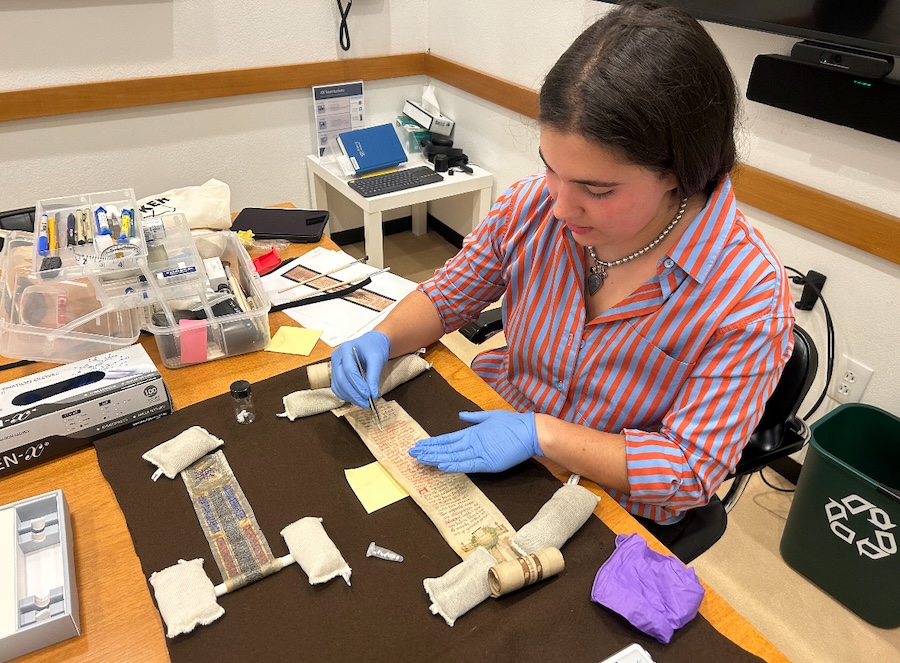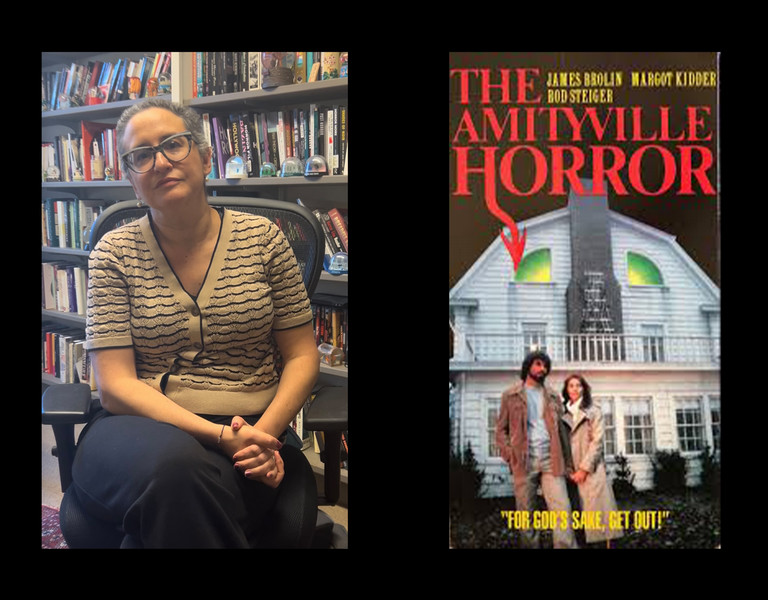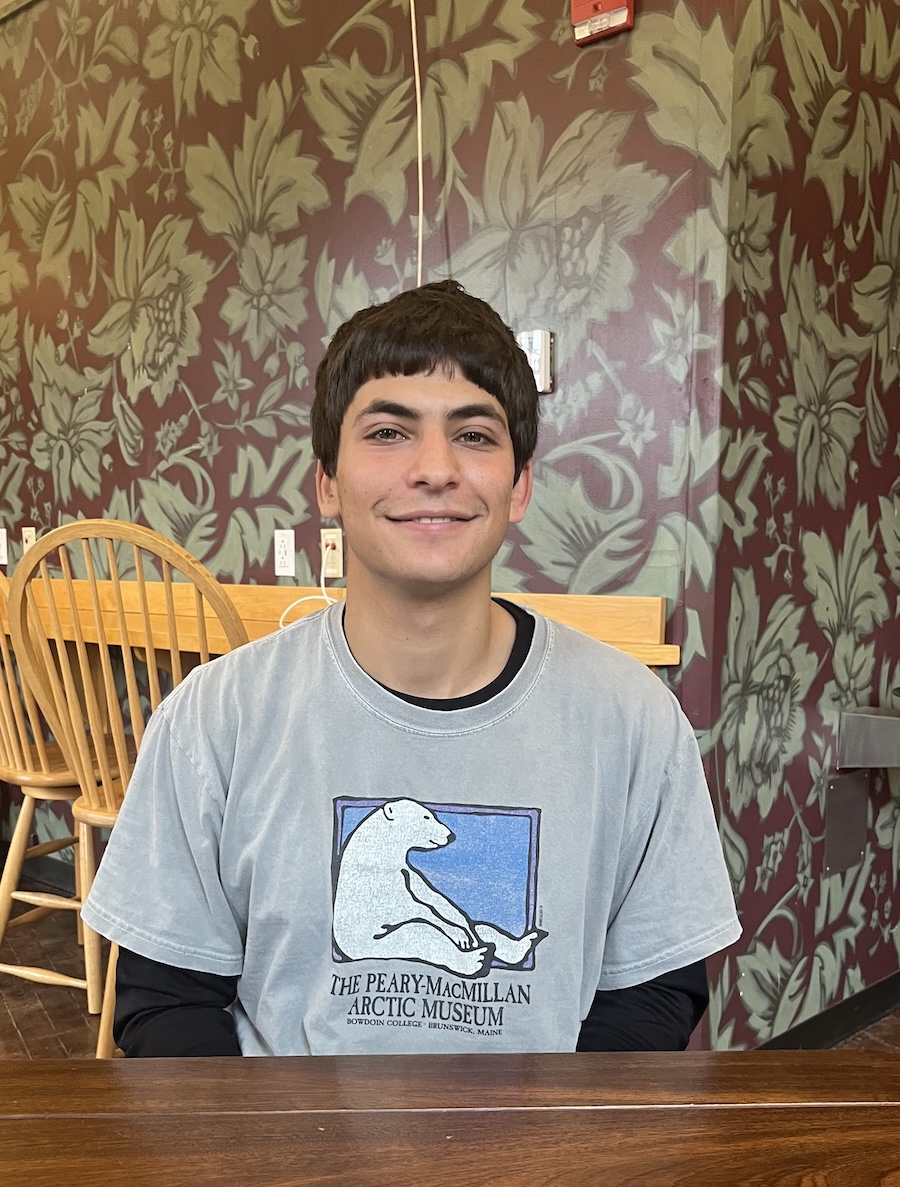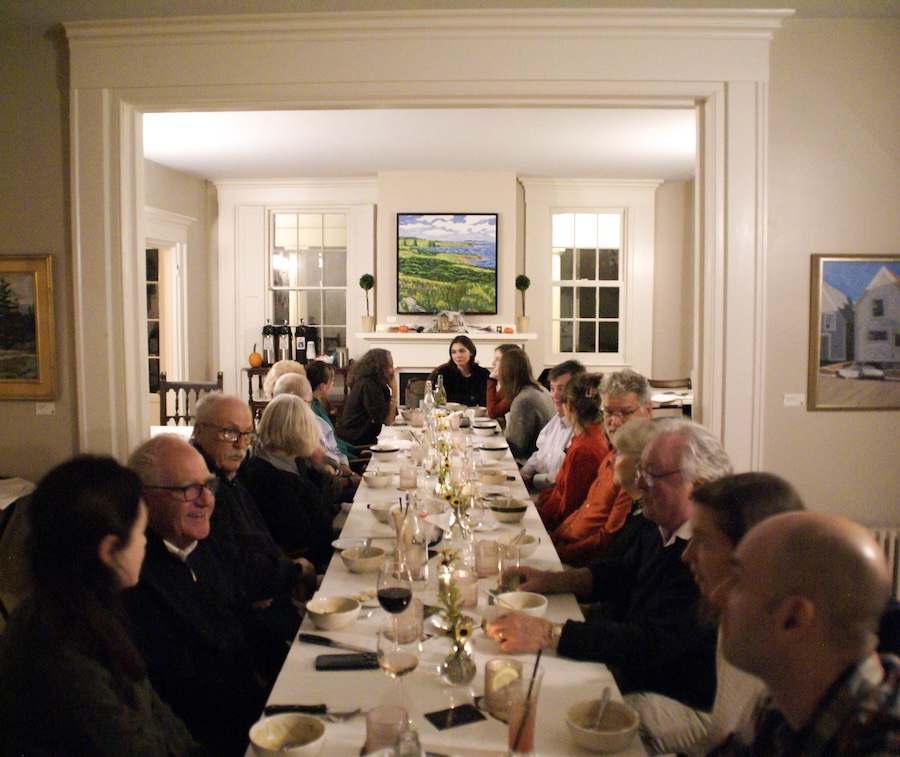An English and Art History Major Writes a Book of Poetry
By Rebecca Goldfine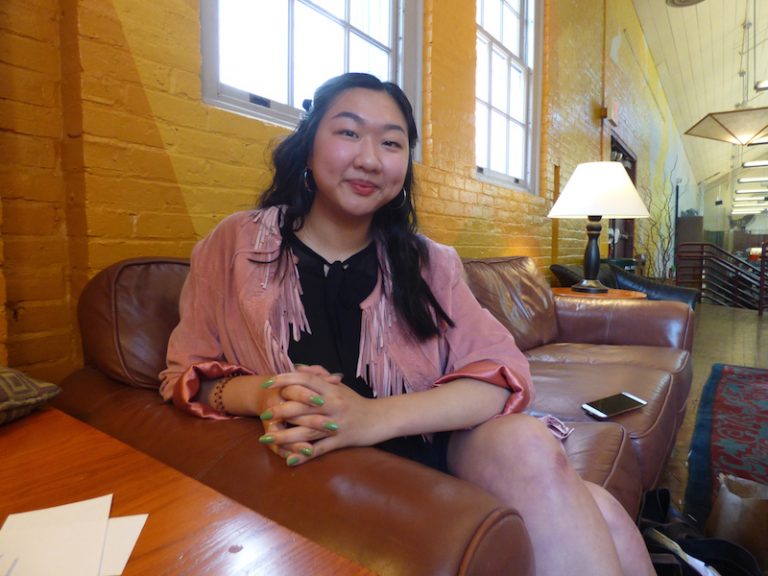
The honors project of June Lei ’18 is one of four projects we’re highlighting to show the breadth and depth of undergraduate work this year.
Titles are hard, as any student writing an ambitious honors project knows. How to capture the topic and the research method, without getting too wordy or technical? June Lei ’18 solved the problem in a new way, with the rare one-word title for an honors project: Lustre.
The brevity of the title, Lustre — which refers to the way light interacts with the surface of a stone — belies the extent and depth of Lei’s undertaking: more than forty poems, written over the course of the year.
After taking two poetry classes and doing an independent study with Bowdoin’s senior writer-in-residence Anthony Walton, Lei last fall committed to creating a body of work that could stand as a whole. Walton was her advisor on the project.
“All of my poems are trying to laterally engage with similar themes but take different approaches,” Lei said. One of the themes found throughout the book reflects her interest in the way non-animate things become animated, or objects take on subjectivity, an interest she said comes from her studies of art history, which is her other major besides English.
“I was writing about instances of inanimate things becoming animate through throughout time and history, and cultural contexts,” Lei said. One influence on her work was the myth of Pygmalion, a sculptor whose beautiful statue comes to life in the form of a woman called Galatea.
Lei suggested that in today’s times, artificial intelligence and robots could serve as our modern-day Galatea. “I’m interested in granting subjectivity, and whether that is anti-subjective,” she said. “A lot of that comes out of my Asian-American identity as a woman and trying to assert my own subjectivity and understand it, and understand the ways I feel people and society have defined me versus how I choose to define myself.”
A character named Galatea appears in three of Lei’s poems, and is the title of this one:
Galatea
This had to be improvisational; he isn’t very smart.The sculpture watches him. Incredulously. It considers,
what right did he have to bestow sentience?
There are no limits to a sculptor’s passion.
There are no limits to his molestation, to his
perverse imagination.This must have been a mistake: how could
he intend to make this Frankenstein of a woman?
This waxy, marble Frankenstein, A.I. robot Sophia,
Galatea, Juno, with a dog nose
bat eyes moth ears and human woman body?
While Lei appreciates the enduring poignancy of the Pygmalion story (as well as Mary Shelley’s Frankenstein, she added), she said classical Greek mythology doesn’t actually influence her work as much as other narratives she has encountered in her art history studies. At Bowdoin, she said she’s focused on studying contemporary Chinese art. A Chinese-American who grew up in New York City with artistic parents, Lei aspires to work after graduation in the arts in New York City.
“The way I’ve learned to think about things comes very much out of art history,” she said, adding later: “We take seeing for granted, we take it is an objective experience. But I think it is not objective and we need to look at alternative art histories to change that.”
Along with working on her own book of poems this past year, Lei read a book of poetry every week — usually one recommended by Walton — and wrote an eight-page essay in response to it. “This is helpful because you’re constantly writing, you just have to keep pushing yourself,” Lei said. “It is the everyday practice of writing that is most important.”
Lei considers Lustre to be her capstone project at Bowdoin. “I am really proud that I did one thing for a whole year and was able to come out with a final, cumulative project,” she said. “I think so many of my experiences have been disparate, and I’ve studied so many things and been able to do so many amazing things, so to have one project that wraps everything up has been nice. And it will always be something I remember as part of my Bowdoin experience.”
Harvest
One thinks of the world as data input data output until it malfunctions. A computer crashes. Artificial intelligence is presumed by faith. This land is half fiction, half myth: as Alexandria, cities spread across the country carry the same name. In watching the crescendo of a sunset over time, I watch the distance, the skyline, and the rise of the mountain deepen in harmony upon the unmetered curve of the unladen earth. I am jealous of each and every one of these things that lives under the sun together, sleeps together, wakes together at first light, and lives through the shriek of the crow or chicken or macaw. I am jealous of every fig: each fruit equal part salacious and true, fallen in carnage. In the alternating chaos and calm of the harvest, effuse as if you believe in it, as if you believe in anything but sunshine and wine and playing dress up every single day for the rest of this life. It is the fiction of our time which lulls us to pass through. In the low tide mornings, write the harvest of color and data in the arid performance of the earth.the late summer fruit
— its new science, old season—
turns to dulcet rot
June Lei: “This poem is written in a haibun form, which was used in the 17th century by the Japanese poet Basho. Combining prose and haiku, the form often invokes distance, memory, and subjectivity in travel writing.”
